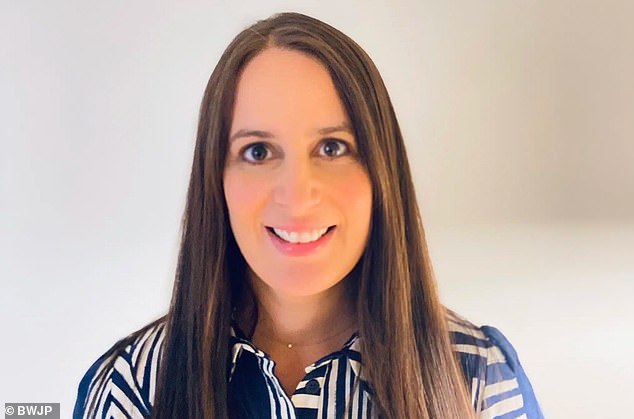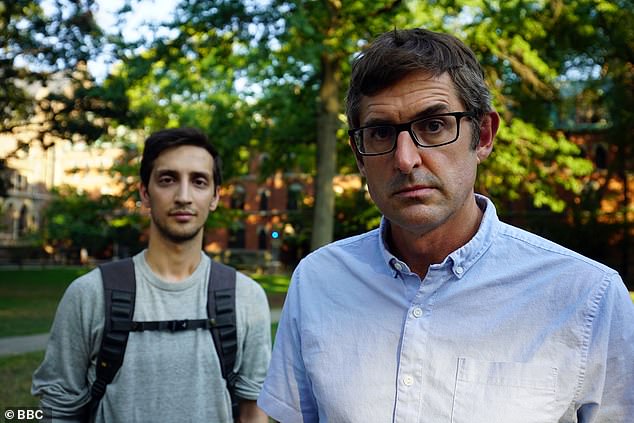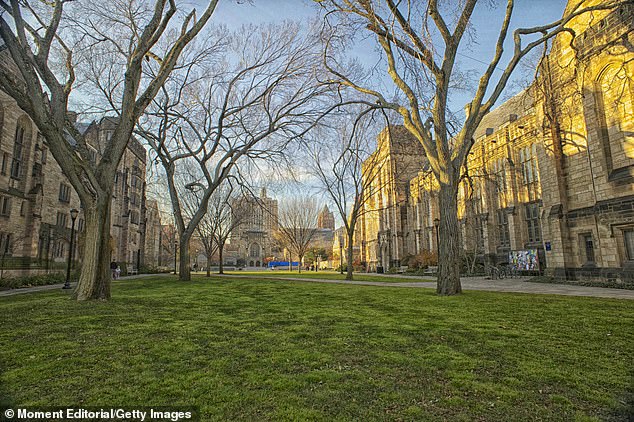Former Yale student is seeking to exact very costly revenge against female prosecutor and women’s rights groups who falsely accused him of rape
An Afghan refugee who won a full scholarship to Yale is suing 15 women’s organizations and his former lawyer for calling him a rapist after he was acquitted of the crime.
Saifullah Khan was accused of raping a fellow student at an Ivy League university after a Halloween party in 2015, but after a jury acquitted him in March 2018, he sued her for defamation.
The story became one of the most high-profile talking points of the #MeToo movement. 78,000 people signed a petition calling for Khan’s deportation. The accused man even appeared in a Louis Theroux documentary.
The former neuroscience student filed a $110 million lawsuit against the university when it expelled him, and has now filed a lawsuit against the groups that tried to prevent him from suing his accuser.
“It is essential to hold those making false allegations accountable while continuing to support and protect the real victims of abuse,” said Khan’s attorney, Alex Taubes.
Saifullah Khan, now 31, who entered Yale in 2012 on a full scholarship as a neuroscience major, claims the university ruined his reputation

Attorney Jennifer Becker represented 15 civil rights groups that filed a petition in court labeling Khan a rapist after he was acquitted of the crime
Khan, now 31, was expected to graduate “with a bachelor’s degree from Yale” and “stood on the threshold of a promising world,” his lawyers said, after winning a place at the university in 2012.
On Halloween night 2015, he and his accuser attended a party hosted by the university’s Shabtai Jewish association, after which they attended a performance by the Yale Student Orchestra in Woolsey Hall.
She told police she had never been drunk before, but that she had consumed so much alcohol at the party that she threw up before she went back to her dorm room, where she claimed Khan had forced himself on her.
The next morning she reported the alleged assault, and Khan was suspended from the university for more than two years, until the case went to trial in March 2018, where a jury acquitted him within three hours.
But in October of that year, Khan was suspended again after another student accused him of hitting him during a threesome and physically assaulting him on multiple occasions.
He was subsequently summoned before the university’s Sexual Misconduct Committee, where his original accuser repeated her allegations of sexual abuse.
Three months later, Khan was expelled after the commission ruled against him. In late 2019, he continued his legal action against his accuser and the university.
A judge has dismissed the case against his accuser on the grounds that witnesses and victims enjoy absolute immunity from defamation in “quasi-judicial hearings.”

Documentary maker Louis Theroux followed the Khan case for six months

Khan, born in Afghanistan, filed a lawsuit against Yale (pictured) after accusing the university of denying him an education
But the Connecticut Supreme Court reversed that decision on appeal, after ruling that the Yale committee hearing lacked due process because Khan was not allowed to call witnesses or cross-examine his accuser.
Fifteen civil rights organizations, including Jewish Women International, Legal Momentum, the Chicago Alliance Against Sexual Exploitation and the Connecticut Coalition Against Domestic Violence, demanded that the high court dismiss Khan’s defamation case.
They have joined together to put their names behind an amicus curiae brief, which is a document from a party not directly involved in a case.
But despite Khan’s acquittal, the original version of their plea bluntly alleged that “While Jane Doe was in college, plaintiff raped her.”
The amicus curiae brief was later revised after objections from Khan’s lawyers, but they argue that Khan has the right to sue them for defamation because the original text remains permanently online as part of the legal record.
“Defendants, organizations with assets in excess of $200,000,000 and an experienced attorney, repeated allegations as facts in a motion for summary judgment filed with the Connecticut Supreme Court,” his latest filing alleges.
Attorney Jennifer Becker, who represented the groups, formally apologized for the wording.
But Khan’s legal team argues that her culpability is even greater because she “worked for more than six years as an assistant district attorney for the Bronx County District Attorney’s Office, where she prosecuted hundreds of cases, including rape cases.”
Khan is now seeking both punitive and punitive damages for “defamation, misrepresentation, negligent infliction of emotional distress and abuse of process” and claims “serious harm” has been caused to his reputation and well-being.
Taubes accused the groups of “making reckless and damaging statements without accountability, potentially undermining the principle that acquittal should undermine the presumption of innocence.”
“Defamatory statements that ignore due process not only harm the individuals involved but also weaken the integrity of our justice system,” he said. The solution for the college.
“A victory would underscore the importance of accurate and fair representation in legal documents and public statements,” he added.
